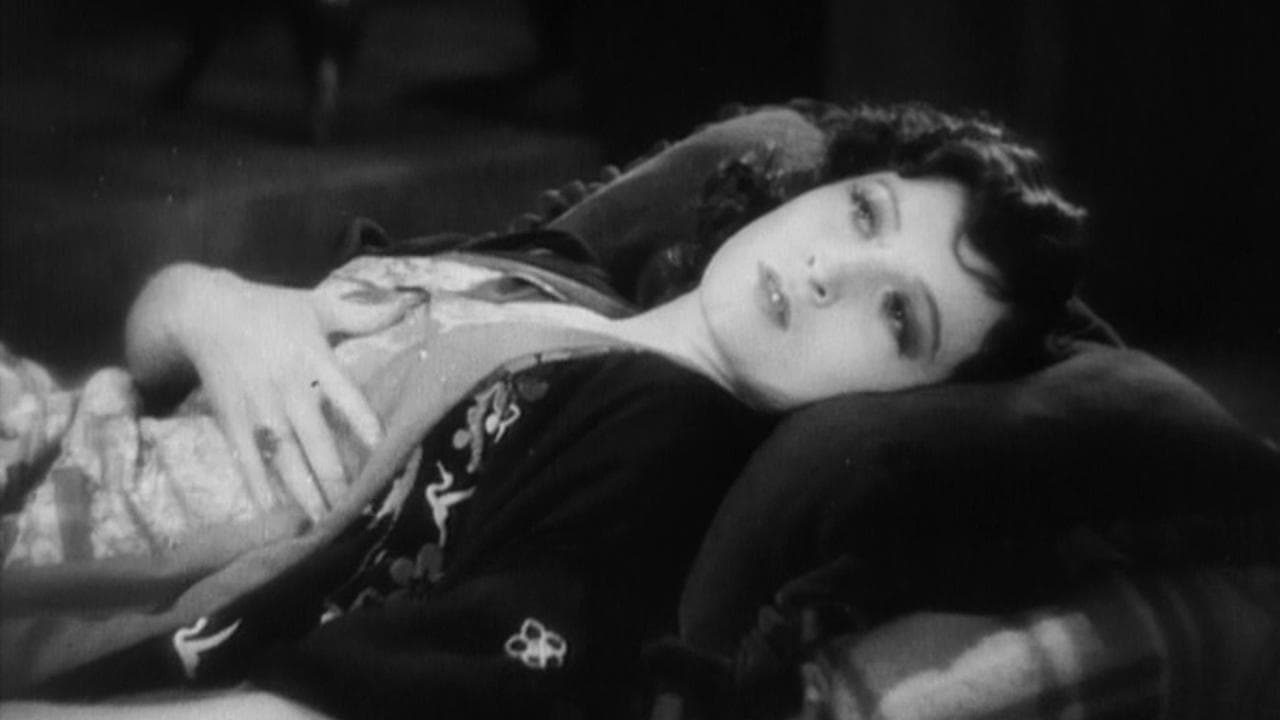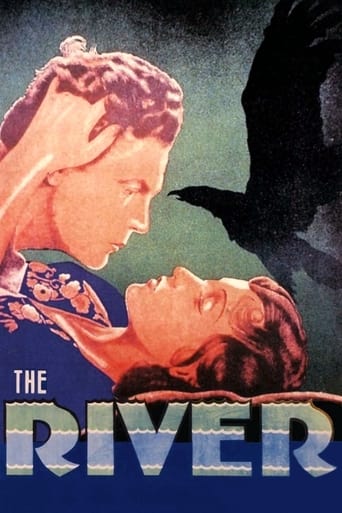

What makes it different from others?
... View MorePerfectly adorable
... View MoreClever, believable, and super fun to watch. It totally has replay value.
... View MoreThe story, direction, characters, and writing/dialogue is akin to taking a tranquilizer shot to the neck, but everything else was so well done.
... View MoreThis film was a revelation to me of Frank Borzage's true capacities of a very different and more original kind than the later professional films of his that made him world famous, especially the ones with Janet Gaynor. This is a wildly romantic epic of the wilderness in spectacular settings, which in part could have been Frank Borzage's own background and origin. The scenery is fantastic around the river in the mountains with its primitive community, and the story is perfect for that almost surrealistic environment. Charles Farrell is still young here, he hasn't met Janet Gaynor yet, and is the helpless prey of Mary Duncan as an experienced lady with a brutal past without enough sex. Charles fights her temptations, on one occasion he cuts down four trees in succession with just an axe to vent his boiled-up energy and frustration, while she amusedly looks on only the more certain of having him hooked.It's an amazing film in spite of being mutilated, the beginning and finale are missing, but from the added stills you still get the whole story, which ought to have been a wonder of cinematic art if not among Borzage's very best - who knows, but at least you can hope for that it will turn up somewhere - 80% percent of all American silents were lost, while only a fifth have come down to us - so far.But what really lifts the film to impressing heights is the tremendous music, pushing on all the way in sustained tension and perfectly matched to the loaded drama, and it was the music that caught my interest in even this mutilated film of poor technical quality. The music is as fascinating as the drama and the film and its romantic settings, and these different elements add to each other to enhance the vitality and volcanic life of the film. Yes, there is some Rimsky-Korsakov in it, but there is nothing wrong with Rimsky-Korsakov, and the mood of his brief interplay is perfectly suited to that particular moment of intimate intriguing intensity, like all the highly dramatic music to all the rest of the film. This would have been a tenner if it had been complete.
... View MoreI should clarify that 'The River (1929)' today exists only in an incomplete form, with about forty minutes of footage considered lost, including the opening and final acts. Nevertheless, a 2006 reconstruction runs for 55 minutes and fills in narrative gaps with intertitles and promotional stills. Importantly, the surviving footage pretty much depicts in its entirety the romance of Allen John (Charles Farrell) and Rosalee (Mary Duncan), which is the backbone of the story.I originally heard 'The River' described as the most erotic film of the silent era, so I naturally said to myself, "that piece of information has absolutely no bearing on my interest in this film." In fact, it isn't as described (something like 'Erotikon (1929)' would probably be closer to the mark), though leading actress Mary Duncan certainly does sultry very well. Farrell's traditional co-star was Janet Gaynor, but I can see why the switch was made here. Gaynor was always the epitome of feminine innocence and fragility; this role requires an actress with a hard crust, someone along the lines of Marlene Dietrich.Most of 'The River' unfolds in an isolated valley, where the construction of a dam has been temporarily postponed. All the workers leave for the winter, except for Rosalee, whose boyfriend has been arrested for murder, and Allen John, who misses the last train because he keeps getting distracted by the womanly presence. The small cast, and confined surroundings, thus breed an element of intimacy (though I can't recall so much as a kiss between the two lovers). Nobody did melodrama like Borzage, and this here is beautifully-shot melodrama.
... View MoreFrank Borzage is widely revered as a master of romantic film-making in a career that ranged from the Silents through the early days of the Talkies. It's difficult - and would be unfair to do so - to judge this film which is incomplete but what appears to be the central love story involving Charles Farrell and Mary Duncan - in lieu of his regular co-star Janet Gaynor - is more or less intact and with the exception of a completely ludicrous piece of background music - Rimsky Korakhov's The Flight Of The Bumblebee laid over a sequence both sensual and sensuous - it tests high on the authenticity scale. If suitable allowances are made for the period and the incomplete footage this is well worth a look.
... View MoreOne cannot be satisfied with this film in its current form; reduced to 45 minutes, deprived of the beginning of the plot and of its end, it will always be frustrating until a print resurfaces which might take us through the missing footage. And yet... miraculously, the scenes preserved are (probably, one has to be cautious) the highlights of the films, the moments which Frank Borzage has taken special care to shoot, and probably those which really interested him: the conscious, blatant seduction of Allen John by Rosalee, her resorting to her own sex appeal to convince him to sleep with her(Put your hand on my heart, Allen John); the meeting between a brooding Rosalee and a naked, swimming Allen John, foreshadowing the much-commented-upon climax of the present version: Rosalee saves Allen John from freezing to death by offering him her warmth: she covers his naked body with her(silk-gowned) shapes, and revives him instantly. Funnily, this sequence has always been the basis for fantasy on the part of French historians after George Sadoul, who saw it in 1929, reported that Mary Duncan was naked. Contrary to other classics from Borzage's late 20s Fox period, this does not feature Janet Gaynor, but the duet Farrell/Duncan: hence a more frankly sensual relationship, which the short version emphasizes by actually eliminating all the other aspects of the plot. Borzage uses Duncan very effectively, by stressing the contrast between her experienced personality and the more childish, naive enthusiasm of Charles Farrell's Allen John. The moment when Rosalee welcomes him home in a winter night, only to find him taking a board game and proposing "entertainment", and the ensuing gesture of Rosalee, sweeping of the board with her hand clearly expecting Allen John to invite her to more entertaining situations, could have been plain ridiculous; but the frank gaze of the actress, the way she lets herself go on the bed, and the sudden realization by Farrell of the situation he is in(He trembles, mouth open , eyes fixed on the woman in front of him; What can he do? What is she doing? Farrell is brilliant here.), all make for a very memorable scene. As usual with Frank Borzage, once they have been together for a few days, a man and a woman actually discover how attracted to each other they've grown. The sensual, or sexual tension is part of Borzage's treatment of a love affair, one that goes beyond reason. But here, contrary to Seventh Heaven or A Man's Castle, the woman leads, with authority. Duncan was the antithesis of Gaynor in that matter. So, until we discover more from this film, with or without sound(It was issued as a part-talkie. None of the sound scenes survive.), this almost entirely satisfactory sketch of seduction by the man who gave us Seventh Heaven, Lucky Star or The Mortal storm is worth unlimited, repeated viewing.
... View More